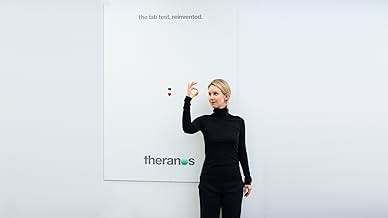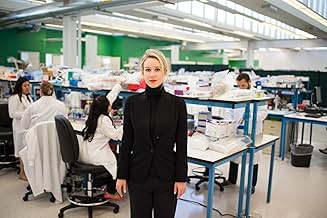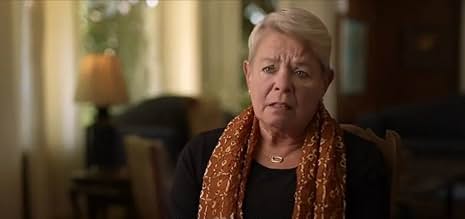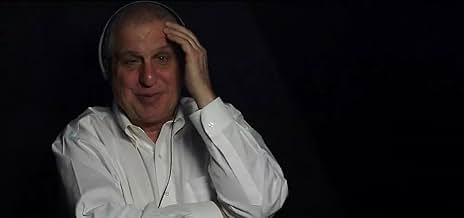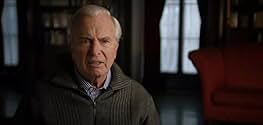Die Erfinderin - Böses Blut im Silicon Valley
Originaltitel: The Inventor: Out for Blood in Silicon Valley
IMDb-BEWERTUNG
7,2/10
15.977
IHRE BEWERTUNG
Die Geschichte von Theranos, einem Multimilliarden-Dollar-Tech-Unternehmen, seiner Gründerin Elizabeth Holmes, der jüngsten Selfmade-Milliardärin, und des massiven Betrugs, der das Unternehm... Alles lesenDie Geschichte von Theranos, einem Multimilliarden-Dollar-Tech-Unternehmen, seiner Gründerin Elizabeth Holmes, der jüngsten Selfmade-Milliardärin, und des massiven Betrugs, der das Unternehmen zum Einsturz brachte.Die Geschichte von Theranos, einem Multimilliarden-Dollar-Tech-Unternehmen, seiner Gründerin Elizabeth Holmes, der jüngsten Selfmade-Milliardärin, und des massiven Betrugs, der das Unternehmen zum Einsturz brachte.
- Für 1 Primetime Emmy nominiert
- 2 Gewinne & 3 Nominierungen insgesamt
Alex Gibney
- Self - Interviewer
- (Synchronisation)
Elizabeth Holmes
- Self - CEO and Founder of Theranos
- (Archivfilmmaterial)
Dave Philippides
- Self
- (as Dave Philippide)
Ramesh Balwani
- Self - President and Chief Operating Officer
- (as Sunny Balwani)
Empfohlene Bewertungen
I was struck by some of the similarities between this and an ostensibly very different documentary I recently watched, about the disastrous Fyre (music) Festival. In both cases, a young person managed to get older and supposedly wiser people to give them ridiculous amounts of money based purely on their chutzpah, while providing nothing in the way of oversight or verification in return. In both cases, everyone involved should have known better from the beginning.
I don't know the history of the production of this documentary, but there's a lot of very flattering footage of Holmes, so my guess is that at the heart of this, someone was working on a hagiography about her and then re-tasked the footage when things went South. This means you'll get your fill of her strange unblinking stare and weirdly affected voice.
I found very amusing that hordes of older men were quick to fawn over her (sometimes to an embarrassing degree) and support her financially, while the only person who didn't buy it was her female professor at Stanford. Is it possible these men maybe weren't thinking with their brains? I wonder (actually I don't).
Everyone compared her to Steve Jobs, and she consciously cultivated the image, but the thing everyone forgets is the Apple didn't involve any new or even challenging technology. No one doubted you could build a home computer. Jobs' genius was realizing people would *buy* one. In contrast, Holmes was claiming to have developed a revolutionary new technology that had eluded some of the biggest medical tech companies in the world, and everyone simply took her word for it with no evidence whatsoever. Imagine if instead of a computer, Jobs had claimed to have built a spaceship in his garage, and then rounded up investors without showing it to anyone. That's more like what Theranos was like.
The movie does a very good job of laying out the facts and the time line, but a central question remains unanswered; namely, when exactly did things go from "optimism" to "fraud"? Was it a scam from the beginning, or did she really think she could pull it off? Maybe that can't be answered by anyone but Holmes, and she's not saying. Even if you're very generous with your impression of her, the "adults" should have more realistic and looked out for things.
In the end, it's a cautionary tale from which I doubt anyone will learn anything.
I don't know the history of the production of this documentary, but there's a lot of very flattering footage of Holmes, so my guess is that at the heart of this, someone was working on a hagiography about her and then re-tasked the footage when things went South. This means you'll get your fill of her strange unblinking stare and weirdly affected voice.
I found very amusing that hordes of older men were quick to fawn over her (sometimes to an embarrassing degree) and support her financially, while the only person who didn't buy it was her female professor at Stanford. Is it possible these men maybe weren't thinking with their brains? I wonder (actually I don't).
Everyone compared her to Steve Jobs, and she consciously cultivated the image, but the thing everyone forgets is the Apple didn't involve any new or even challenging technology. No one doubted you could build a home computer. Jobs' genius was realizing people would *buy* one. In contrast, Holmes was claiming to have developed a revolutionary new technology that had eluded some of the biggest medical tech companies in the world, and everyone simply took her word for it with no evidence whatsoever. Imagine if instead of a computer, Jobs had claimed to have built a spaceship in his garage, and then rounded up investors without showing it to anyone. That's more like what Theranos was like.
The movie does a very good job of laying out the facts and the time line, but a central question remains unanswered; namely, when exactly did things go from "optimism" to "fraud"? Was it a scam from the beginning, or did she really think she could pull it off? Maybe that can't be answered by anyone but Holmes, and she's not saying. Even if you're very generous with your impression of her, the "adults" should have more realistic and looked out for things.
In the end, it's a cautionary tale from which I doubt anyone will learn anything.
Well, Elizabeth Holmes is still a mystery. Every media incarnation of hers (from magazines/newspapers to the book to this doc to the film version currently in production with Jennifer Lawrence) Holmes becomes a little more clear - and it's good to hear her infamously deep voice - but "The Inventor" hardly solves her. Didn't anyone know her in high school or college (short a time as that may have been)? Can't the filmmakers interview them? What about family? Surely someone must be willing to talk about her psyche. The people they interview is more or less the same as the book and hold no surprise in this medium, although Rochelle Gibbons was very powerful to hear, more so than the book. There were also opportunities in the doc to explore themes like Gen Y arrogance, the power of branding, and the cluelessness of companies like Walgreens - which did not do any vetting in the least...but they focused on the Silicon Valley Unicorn theme. It was a good watch, overall, especially if you like learning new and awful things about humanity and seeing some really awkward footage...like Elizabeth Holmes in a bouncy house. But the most harrowing segment-where "The Inventor" almost took off- was the focus on the (literally) hot mess inside of the Theranos machine. A lot of spilled blood, broken glass, and basic slime...all with the risk of transmitting fun stuff like Hepatitis to the many Theranos lab techs. But "The Inventor" is mostly a soft peddle of the Theranos story. It should have made much more of an emotional impact. I also suspect the folks whose health was damaged by Theranos's false diagnoses in the Arizona testing facilities are suing and therefore could not be filmed. Their filmed experiences would have been amazing. Overall, I would have appreciated more theorizing on the motivation of Theranos and Elizabeth Holmes, although this doc suggests that she is basically bananas.
"The Inventor: Out for Blood in Silicon Valley" (2019 release; 120 min.) is a documentary about the rise and fall of Elizabeth Holmes and her biotech company Theranos. As the movie opens, we are in 2014, at the peak of the company's might and moving into spectacular new headquarters in Palo Alto. The voice over informs us that "within 4 years, the company would go from being valued at $10 billion to less than zero. This is a cautionary tale." We then are introduced to Holmes' background, what an over-achiever she always was, and eventually leading her to drop out of Stanford at age 20, and instead use the tuition money as seed money for Theranos, which Holmes envisioned as providing low-cost access to blood testing. As the company grow, staff is enthused, female employees see Holmes as a hero, and publications like Fortune and inc. provide glowing coverage. But the company isn struggling with he manufacture of its Edison testing kit... At this point we're 15 min. into the movie, and you'll just have to see for yourself how it all plays out.
Couple of comments: this is the latest documentary from Alex Gibney, whose 2013 "The Armstrong Lie" is just one of his many outstanding films. Here he looks at Holmes and Theranos. Can the two be separated? It'd be difficult to do so, as it almost feels like Holmes built a cult of personality within Theranos. When a company grows so spectacularly and then implodes with an even greater bang, it always makes for fascinating viewing/reading/studying. Gibney seems to have gone all out in interviewing the relevant characters, including journalists and ex-employees. And then there is former Secretary George Schultz, now in his 90s, and still going strong. He introduces Holmes to his grandson, who ends up working at Theranos and see it all go wrong. Wow. The movie also benefits from the inclusion of the interview of a behavioral economist, who puts it all into context. At the beginning we are told this is a cautionary tale, and that it certainly is, but it's a lot more than just that.
"The Inventor: Out for Blood in Silicon Valley" recently premiered on HBO and I finally watched it on demand the other night. I have a soft sport for non-fiction in general, including in films and in books. As soon as I saw the name Alex Gibney associated with this, I was pretty sure that this would be worth checking out, and I was right. If you love documentaries, I'd readily suggest you check it out, be it on VOD or eventually on DVD/Blu-ray, and draw your own conclusion.
Couple of comments: this is the latest documentary from Alex Gibney, whose 2013 "The Armstrong Lie" is just one of his many outstanding films. Here he looks at Holmes and Theranos. Can the two be separated? It'd be difficult to do so, as it almost feels like Holmes built a cult of personality within Theranos. When a company grows so spectacularly and then implodes with an even greater bang, it always makes for fascinating viewing/reading/studying. Gibney seems to have gone all out in interviewing the relevant characters, including journalists and ex-employees. And then there is former Secretary George Schultz, now in his 90s, and still going strong. He introduces Holmes to his grandson, who ends up working at Theranos and see it all go wrong. Wow. The movie also benefits from the inclusion of the interview of a behavioral economist, who puts it all into context. At the beginning we are told this is a cautionary tale, and that it certainly is, but it's a lot more than just that.
"The Inventor: Out for Blood in Silicon Valley" recently premiered on HBO and I finally watched it on demand the other night. I have a soft sport for non-fiction in general, including in films and in books. As soon as I saw the name Alex Gibney associated with this, I was pretty sure that this would be worth checking out, and I was right. If you love documentaries, I'd readily suggest you check it out, be it on VOD or eventually on DVD/Blu-ray, and draw your own conclusion.
Grateful to see this story told, but the documentary is unnecessarily long, repetitive, and overstylized to make up for it.
I had read John Carreyrou's fine Wall Street Journal articles, as well as his thrilling book, Bad Blood, before seeing this documentary tonight. The first half of the documentary seems almost worshipful of Elizabeth Holmes, building up her mystique and putting her unique ability to attract doting followers to her message on display. Quite a lot of time is spent gazing into those big blue, unblinking eyes. By the time we get around to the cracks in the facade, we are more than an hour into the film. It is inevitable that a lot of important background was left out: the climate of constant firings that went on for years, the fact that Sunny and Elizabeth met when he was 38 (and married) and she was 19, that Elizabeth's dad had been a VP at Enron, etc. Mostly I would have appreciated a little more specific information on why the Edison machine failed. The examples given in the film don't seem that unsolvable, but I know from the book that there were some basic issues that simply couldn't be dreamed away owing to the tiny sample sizes from the finger pricks.
Tyler Shultz comes off as a happy-go-lucky guy, but in fact he is one of the heroes of this story. It is not mentioned in this film, but not just his grandfather former Secretary of State and Theranos board member George Schultz, but also his parents flipped out when he told them he was quitting the company. His bravery in standing up for his values is truly admirable in one so young, especially considering the immense pressure he came under. To his parents' credit, they came around and ended up mortgaging their home to pay his legal bills.
Ultimately, though, the story gets Elizabeth right: she is a zealot who is deaf to any naysayers, even to this day. The cautionary tale for the rest of us, is are we George Shultz or Tyler Shultz? Are we willing to see the truth and make a difficult decision, or are we too invested to be willing to give up on something we had believed in?
Wusstest du schon
- WissenswertesThe film's producer met with Elizabeth Holmes early in development, before criminal charges were filed, to determine whether she could be interviewed for the film. Ultimately the director decided he wanted to portray how Holmes carefully crafted Theranos and her own image to be seen by the public, up until the story unraveled. Accordingly, aside from brief footage from her deposition, all footage of Holmes seen in the film is from archival material from before she was charged, most of it her own commissioned promotional video for Theranos. Alex Gibney remarked "She made the documentary she wanted me to invest in and I used it to a different purpose."
- VerbindungenReferenced in Film Junk Podcast: Episode 702: Dragged Across Concrete (2019)
- SoundtracksU Can't Touch This
Written by M.C. Hammer (as Stanley Kirk Burrell), Rick James & Alonzo Miller
Performed by M.C. Hammer
Courtesy of Capitol Records
Under license from Universal Music Enterprises
Top-Auswahl
Melde dich zum Bewerten an und greife auf die Watchlist für personalisierte Empfehlungen zu.
- How long is The Inventor: Out for Blood in Silicon Valley?Powered by Alexa
Details
- Erscheinungsdatum
- Herkunftsland
- Sprache
- Auch bekannt als
- Untitled Alex Gibney/HBO Project
- Produktionsfirmen
- Weitere beteiligte Unternehmen bei IMDbPro anzeigen
- Laufzeit
- 1 Std. 59 Min.(119 min)
- Farbe
- Sound-Mix
- Seitenverhältnis
- 16:9 HD
Zu dieser Seite beitragen
Bearbeitung vorschlagen oder fehlenden Inhalt hinzufügen



